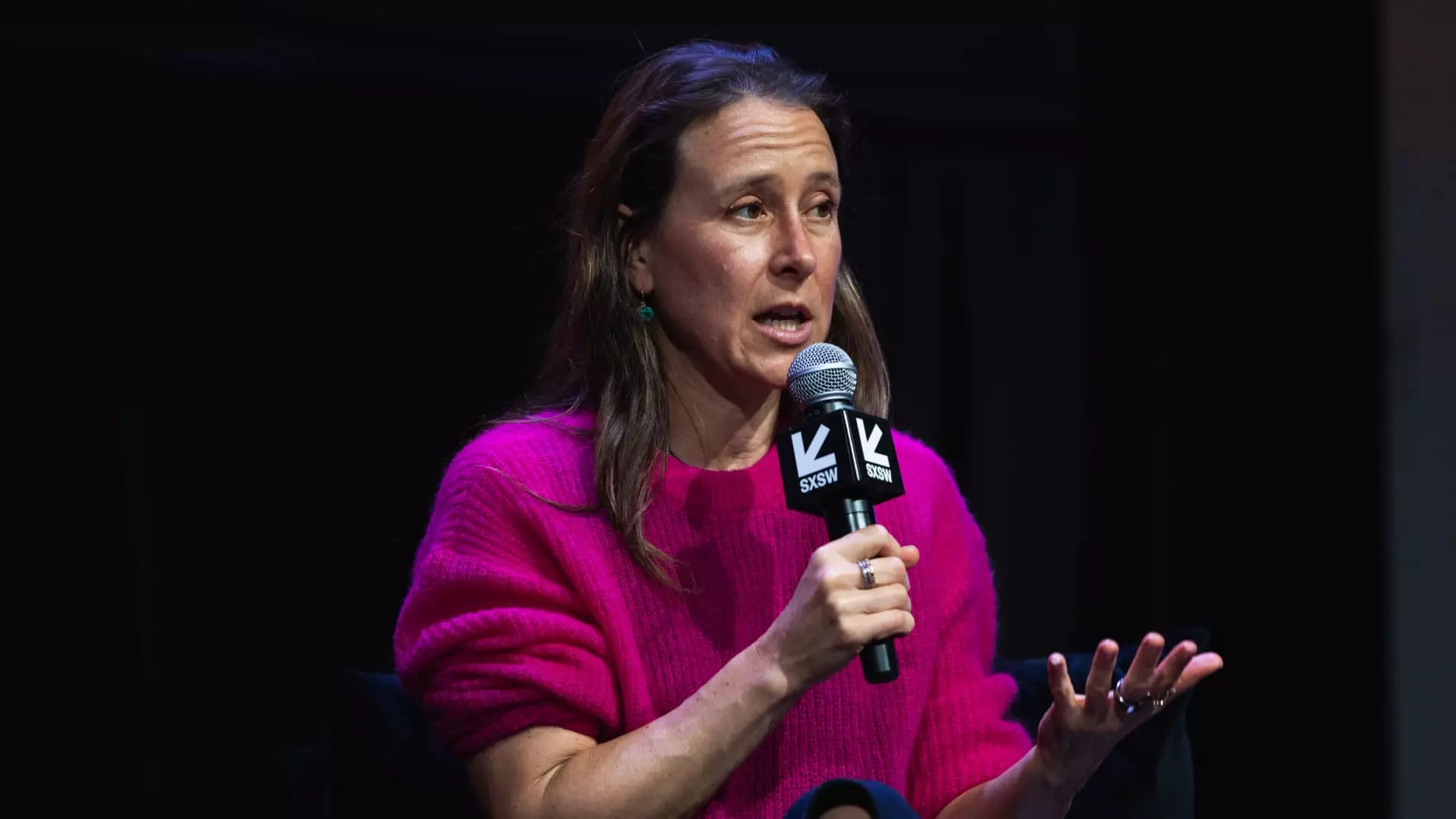In just over a decade, 23andMe has transformed from a pioneering force in genetic testing to a company grappling with the harsh realities of bankruptcy. Founded in 2006 by Anne Wojcicki, an icon in the DNA testing landscape, the company initially electrified consumers with its at-home testing kits. Offering individuals a glimpse into their ancestry and genetic predispositions, 23andMe became synonymous with personal genomics. At its zenith, the firm garnered a whopping valuation of $6 billion, but the bubble has burst, leading to its recent filing for Chapter 11 bankruptcy in a Missouri federal court. This extraordinary turn of events raises critical questions about the sustainability of tech startups, especially when they expand aggressively without solidifying their revenue streams.
Leadership and Accountability Amidst Challenges
The resignation of Wojcicki as CEO marks a pivotal moment in the company’s journey. Her announcement on social media, claiming accountability for the challenges faced, suggests a thoughtful reflection on her role during this tumultuous phase. Yet, it’s hard to ignore that her leadership style, characterized by risk-taking and innovation, ultimately may have contributed to the firm’s undoing. While Wanda G. renowned for her flair, innovation, and bold strategies, she has left boatloads of criticisms in her wake. Wojcicki’s refusal to acknowledge the possibility of consolidating resources instead of pursuing a lengthy battle to take the company private is a point of contention that underscores the perilous risks of entrepreneurial bravado.
As 23andMe transitions to an interim CEO, Joseph Selsavage is tasked with soothing wounds that, ironically, Wojcicki’s ambition inflicted. The fresh leadership may herald new beginnings, but it also raises eyebrows at the company’s governance structure, especially after the board previously rejected Wojcicki’s proposals multiple times. These scenarios speak volumes about the disconnect that can occur between visionary leadership and the practical demands of sustainable management.
The Financial Freefall: Missteps in Strategic Planning
No examination of 23andMe’s downfall is complete without scrutinizing its financial trajectory. After going public in 2021 through a merger with a special purpose acquisition company (SPAC), what initially seemed like an innovative move has now become a cautionary tale. Although the partnership granted the company a post-merger valuation of about $3.5 billion, it has struggled to maintain investor confidence. The stock has plummeted, reflecting investors’ growing skepticism about 23andMe’s ability to generate consistent revenue. Just a month ago, the company’s market capitalization had dwindled to a mere $25 million, a stark reminder of the disconnect between initial hype and long-term viability.
The company remains precariously perched with assets and liabilities reportedly ranging from $100 million to $500 million. Yet, its prospects seem dim as it contemplates the sale of its assets in a Delaware bankruptcy court. History suggests that many startups fail by failing to pivot and adapt to shifting market dynamics; 23andMe’s struggles signify that even groundbreaking innovations cannot protect a company from the harsh realities of financial mismanagement and strategic oversights.
Privacy Concerns: The Dark Cloud Over Innovation
Adding an unsettling layer to 23andMe’s issues are the deep-seated privacy concerns surrounding its genetic database. In October 2023, hackers infiltrated the company’s systems, compromising the information of almost 7 million customers. This breach not only jeopardized individual privacy but also elicited widespread distrust among potential users. In light of such scandals, it’s becoming increasingly apparent that startups need to prioritize robust cybersecurity measures alongside innovation, particularly when dealing with sensitive data.
California Attorney General Rob Bonta’s consumer alert urging residents to consider removing their genetic data from 23andMe’s platform encapsulates the growing skepticism regarding the company’s data management practices. For a firm that has thrived on the promise of transparency and individual control, these recent events run directly counter to its core ethos. While Wojcicki remains hopeful about creating a platform for choice and transparency, her track record may only deepen the concerns of wary consumers.
A Mirror for Future Entrepreneurs
The unraveling of 23andMe serves as a stark reminder for budding entrepreneurs and startups in the tech realm. While innovation plays a crucial role in the success of a company, founders must also be grounded in practical considerations of governance, financial sustainability, and consumer trust. Ultimately, 23andMe’s journey encapsulates the lethal combination of soaring ambitions and unbridled risks that can derail even the most promising of enterprises. As the company navigates the murky waters of bankruptcy, it leaves behind lessons on the critical balance between dreaming big and managing the day-to-day realities of running a business.


Leave a Reply